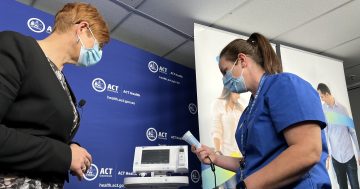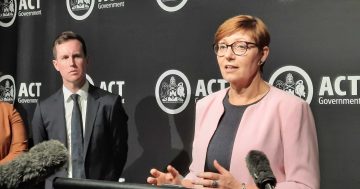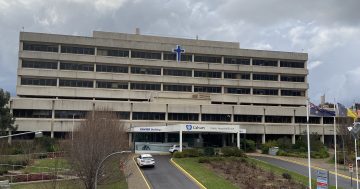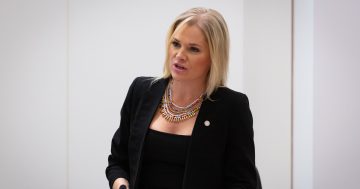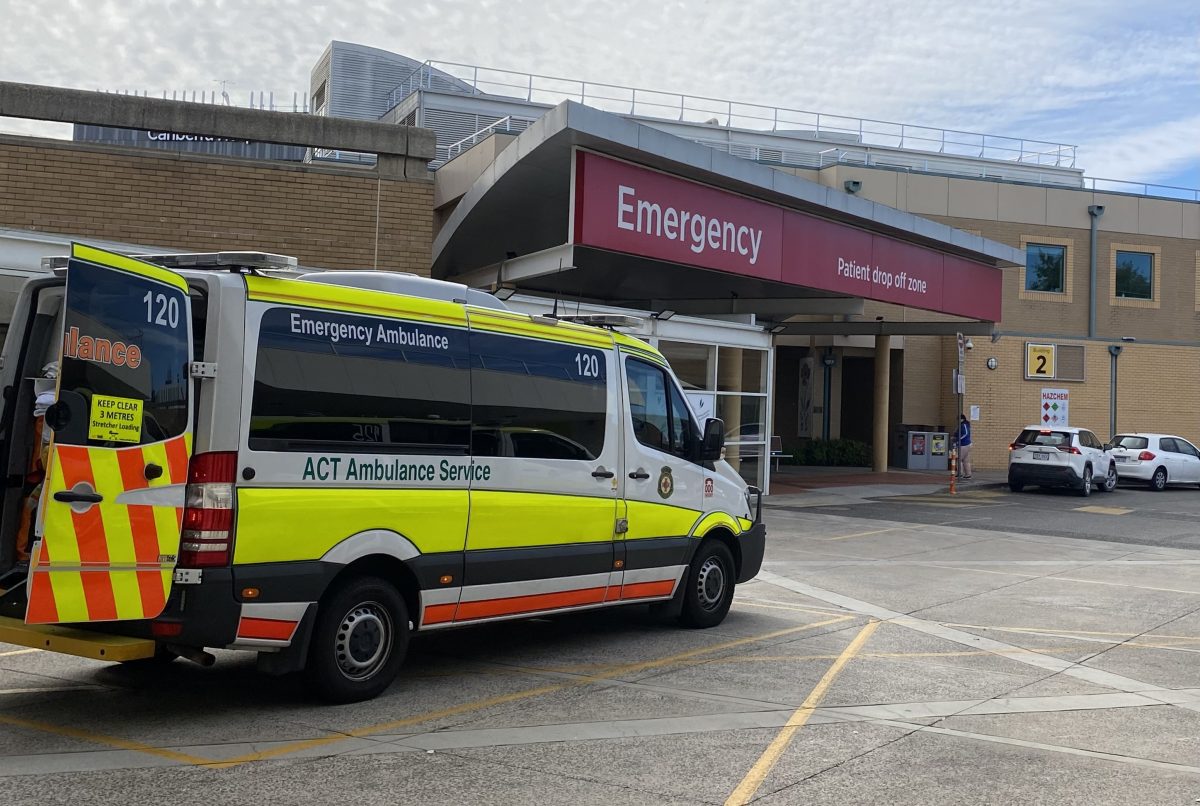
The latest CHS culture survey pointed out a “notable disconnect” between those who make decisions in offices and frontline workers providing care. Photo: Claire Fenwicke.
“Message received.”
That’s the response of Canberra Health Services chief Dave Peffer after recent staff results showed a decline in the level of trust they have for the executive team.
Culture has been an issue for the CHS for a number of years, with some reporting a “culture of fear” in the organisation.
Mr Peffer previously also hasn’t shied away from the fact the healthcare brand has an image problem.
The latest survey results (November 2023) show that CHS’s culture has benchmarked slightly better than average for the first time in 18 years and that the positive engagement score increased.
Mr Peffer was initially disappointed the gains hadn’t been larger but said as he looked closer, things were better than he’d thought.
“The cultures of public health services around the country have been deteriorating in recent years … at a time when most are deteriorating, we’re improving,” he said.
“Sixty per cent of our team [who filled out the survey] told us that Canberra Health Services is a ‘great place to work’. The best result we’ve had since we started surveying.
“Each year, we’re improving, but I’m not shying away from the fact that we have a lot of work left to do.”
Results for bullying, harassment, favouritism and discrimination had all improved, but the number of people who had witnessed or felt discriminated against was still higher than CHS’s peers.
However, some particularly concerning areas were highlighted in the survey as well.
Mr Peffer said his number one takeaway was “very clear feedback” that the trust in the current executive team wasn’t great, dropping to 32 per cent (down 3.5 per cent) from the December 2022 survey.
“It’s low and it’s getting worse,” he said.
“For some, you’ve highlighted a notable disconnect between those in offices making decisions and those on the front line, providing care or supporting that care.
“I’ve heard your message. It is clear and it’s fair. As an organisation, there are questions we’ll need to ask, answer and act on … expect change.”
When asked by Region to expand further on what he thought staff wanted to see, Mr Peffer said the next 12 months would be about listening and acting.
“People want us to get back to basics and understandably want their leader there supporting them in delivering care,” he said.
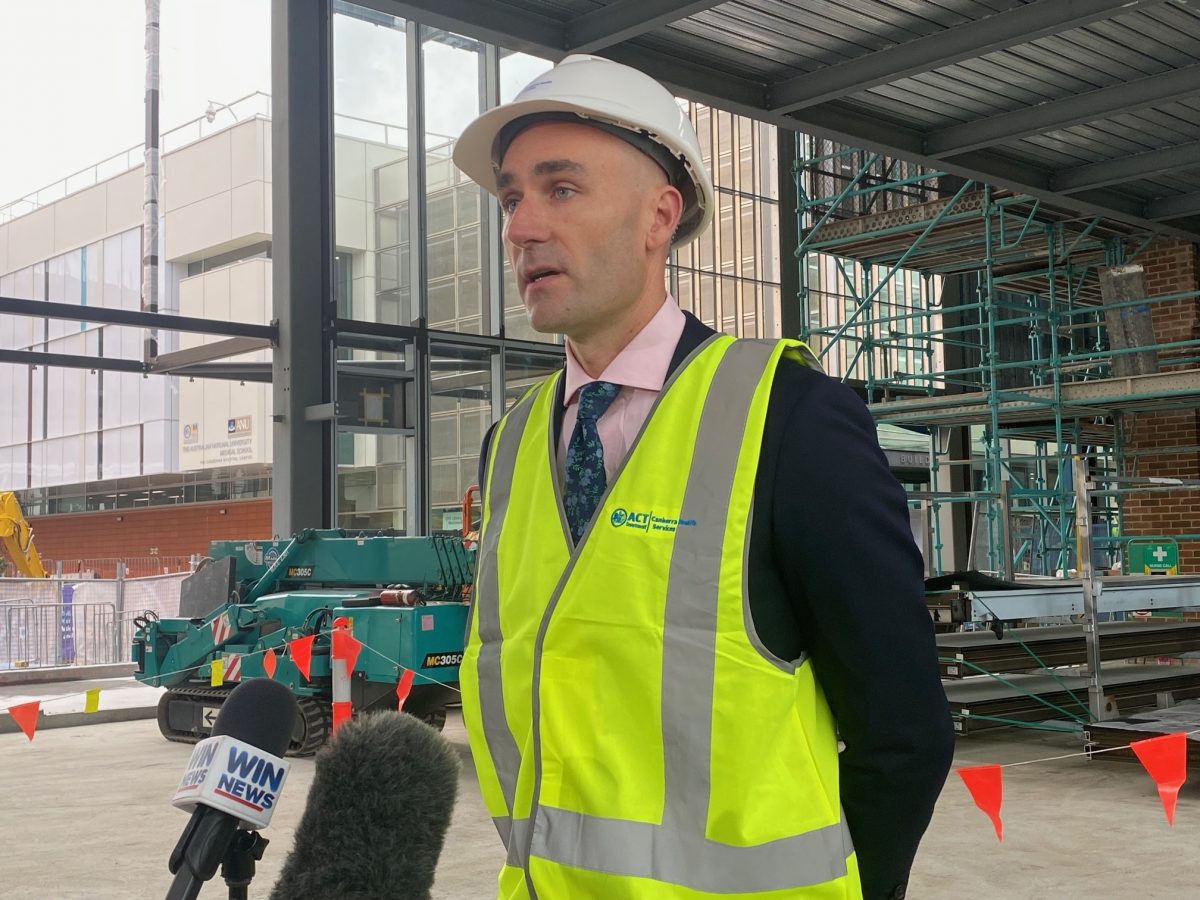
CHS CEO Dave Peffer said he and the executive had heard loud and clear that they needed to do better so that staff could feel listened to and supported. Photo: Claire Fenwicke.
Overall trust in frontline supervisors and team leaders stood at 65 per cent (up 4.3 per cent), but the results differed depending on the department the respondent was in.
The Division of Medicine, Division of Surgery, Nursing and Midwifery and Patient Support, and Women, Youth and Children all saw solid increases, while Pathology decreased.
This is the first time the North Canberra Hospital (formerly Calvary Public Hospital Bruce) has been included in the survey.
Looking at that cohort specifically (which only had a 38 per cent response rate), only 55 per cent said CHS was a ‘truly great place to work’.
Only 25 per cent had a high level of trust in the executive team, while 62 per cent had trust in their frontline supervisors and team leaders.
Another area of concern was the response to occupational violence.
About 20 per cent of respondents indicated this was an acceptable part of the job, similar to previous years, and an attitude Mr Peffer rejected.
“It’s absolutely true that we provide a critical safety net for our patients and our community, but that means we often find our teams in volatile and risky situations,” he said.
“But accepting violence in the workplace cannot be a part of that.”
Looking at the results, Shadow Health Minister Leanne Castley said the gains that had been made were still not good enough.
“This is the direct result of the Labor-Greens government’s administration of the health portfolio being characterised by short-term fixes, inadequate funding and no strategic vision,” she said.
She took particular issue with the 25 per cent of CHS staff who said there was no positive impact resulting from the 2021 survey, compared to 19 per cent who said there was.
“It is clear that this government is more concerned about manufacturing positive results by holding this survey off until the weather is warmer [and people feel more positive] than taking meaningful action to fix the culture,” Ms Castley said.
“Canberra Health Services staff deserve to have their concerns taken seriously by the government rather than being subject to a box-ticking exercise where no meaningful action is taken.”
More than 5,000 CHS staff had filled out the survey.
A spokesperson took issue with Ms Castley’s suggestion the results had been “manufactured”, stating it was a “disservice” to the health workers.
“These are crucial contributions from crucial teams, and they don’t deserve to be misrepresented,” they said.
“CHS is confident that the level of data across all divisions reflects the culture on the ground and has already begun working with teams to address any concerns that have been raised in individual areas to support a positive culture into the future.”













